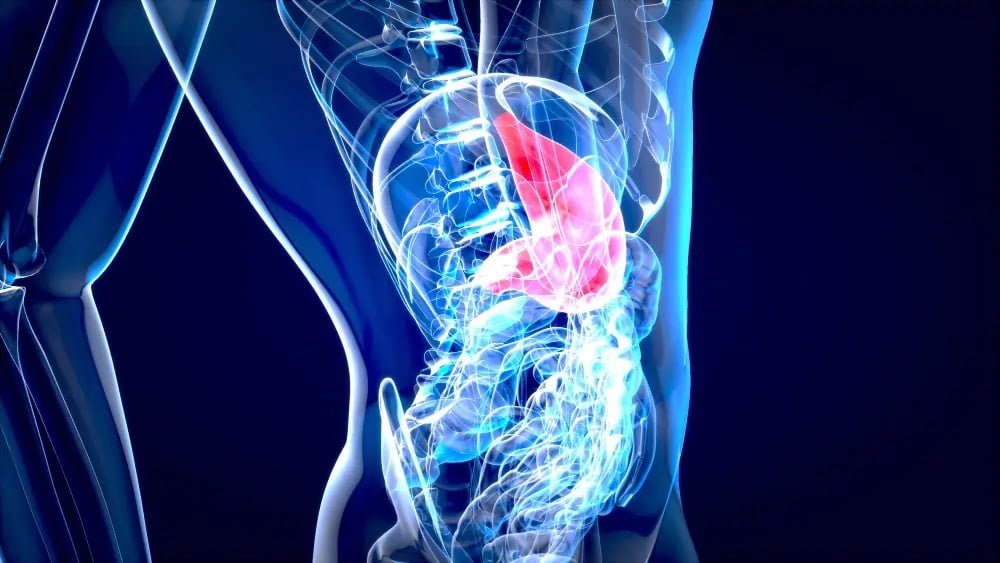
Vitamin D3 is a type of vitamin D that is naturally produced by your skin when exposed to sunlight. It is also found in some animal-based foods, such as fish, eggs, and cheese. Vitamin D3 is essential for many aspects of your health, from your bones to your brain. In this article, we will explore some of the benefits of vitamin D3 and how you can increase your levels.
Why Do You Need Vitamin D3?
Vitamin D3 helps your body absorb and use calcium, which is the main mineral that makes up your bones. Without enough vitamin D3, your bones can become weak, brittle, and prone to fractures. Vitamin D3 also supports your immune system, which helps you fight off infections and diseases. Additionally, vitamin D3 is involved in regulating your mood, memory, and cognitive function. Some studies suggest that vitamin D3 may also protect against certain types of cancer, diabetes, heart disease, and inflammation.
How Much Vitamin D3 Do You Need?
The amount of vitamin D3 you need depends on your age, skin color, sun exposure, and other factors. The current recommendation from the U.S. National Academy of Medicine is 600-800 IU (international units) of vitamin D per day for most adults, but some experts suggest that higher doses may be beneficial for optimal health. The best way to know your vitamin D3 status is to get a blood test from your doctor. The optimal range of vitamin D3 in your blood is between 20 and 50 ng/ml (nanograms per milliliter).
How to Boost Your Vitamin D3 Levels
There are three main ways to increase your vitamin D3 levels: sunlight, food, and supplements.
Sunlight
Sunlight is the most natural and effective source of vitamin D3. When your skin is exposed to UV-B rays from the sun, it converts a cholesterol-like substance into vitamin D3. The amount of vitamin D3 you can make from sunlight depends on the time of day, season, latitude, cloud cover, and sunscreen use. Generally, 10-30 minutes of midday sun exposure on your arms, legs, or back can provide enough vitamin D3 for most people. However, if you live in a high latitude, have dark skin, or use sunscreen, you may need more sun exposure or other sources of vitamin D3.
Food
Food is another way to get vitamin D3, but the options are limited. Only a few foods naturally contain vitamin D3, such as fatty fish (salmon, tuna, mackerel), beef liver, egg yolks, and cheese. Some foods are fortified with vitamin D3, such as milk, yogurt, orange juice, and cereals. However, the amount of vitamin D3 in these foods may vary and may not be enough to meet your needs. Therefore, it is important to check the nutrition labels and choose foods that are high in
vitamin D3.
Supplements
Supplements are the third and most reliable way to boost your vitamin D3 levels. There are two types of vitamin D supplements: vitamin D2 (ergocalciferol) and vitamin D3 (cholecalciferol). Vitamin D3 is the preferred form because it is more potent and longer-lasting than vitamin D2. Vitamin D3 supplements come in different forms, such as capsules, drops, sprays, and gummies. The dosage of vitamin D3 supplements varies depending on your age, health condition, and blood level. It is advisable to consult your doctor before taking any vitamin D3 supplements, as too much vitamin D3 can cause toxicity and adverse effects.
Conclusion
Vitamin D3 is a vital nutrient that supports your bone, brain, heart, and skin health. You can get vitamin D3 from sunlight, food, and supplements, but you may need to adjust your intake depending on your individual needs. By maintaining optimal vitamin D3 levels, you can enjoy the benefits of this sunshine vitamin and improve your overall well-being.
FAQs
Q: What are the benefits of vitamin D3?
A: Vitamin D3 helps your body absorb and use calcium, which is important for bone health. It also supports your immune system, mood, memory, and cognitive function. Some studies suggest that vitamin D3 may also protect against certain types of cancer, diabetes, heart disease, and inflammation.
Q: How much vitamin D3 do I need?
A: The recommended daily intake of vitamin D3 varies depending on your age, skin color, sun exposure, and other factors. The U.S. National Academy of Medicine suggests 600-800 IU of vitamin D3 per day for most adults, but some experts recommend higher doses for optimal health. The best way to know your vitamin D3 level is to get a blood test from your doctor.
Q: How can I get more vitamin D3?
A: You can get more vitamin D3 from sunlight, food, and supplements. Sunlight is the most natural and effective source of vitamin D3, as your skin can produce it when exposed to UV-B rays. However, you may need more sun exposure or other sources of vitamin D3 if you live in a high latitude, have dark skin, or use sunscreen. Food sources of vitamin D3 include fatty fish, beef liver, egg yolks, cheese, and fortified foods. Supplements are the most reliable way to boost your vitamin D3 level, but you should consult your doctor before taking them.
Q: What is the difference between vitamin D3 and vitamin D2?
A: Vitamin D3 and vitamin D2 are two types of vitamin D that have different structures and sources. Vitamin D3 is produced by your skin when exposed to sunlight or obtained from animal-based foods. Vitamin D2 is derived from plant sources or produced by fungi. Vitamin D3 is more potent and longer-lasting than vitamin D2 and therefore preferred for supplementation.
Q: What are the risks of vitamin D3 deficiency or toxicity?
A: Vitamin D3 deficiency can cause weak, brittle, and prone to fractured bones, as well as impaired immune function, mood disorders, and increased risk of chronic diseases. Vitamin D3 toxicity is rare but can occur if you take too much vitamin D3 supplements for a long time. It can cause high blood calcium levels, which can damage your kidneys, heart, and blood vessels.






 Afrikaans
Afrikaans Albanian
Albanian Amharic
Amharic Arabic
Arabic Armenian
Armenian Azerbaijani
Azerbaijani Basque
Basque Belarusian
Belarusian Bengali
Bengali Bosnian
Bosnian Bulgarian
Bulgarian Catalan
Catalan Cebuano
Cebuano Chichewa
Chichewa Chinese (Simplified)
Chinese (Simplified) Chinese (Traditional)
Chinese (Traditional) Corsican
Corsican Croatian
Croatian Czech
Czech Danish
Danish Dutch
Dutch English
English Esperanto
Esperanto Estonian
Estonian Filipino
Filipino Finnish
Finnish French
French Frisian
Frisian Galician
Galician Georgian
Georgian German
German Greek
Greek Gujarati
Gujarati Haitian Creole
Haitian Creole Hausa
Hausa Hawaiian
Hawaiian Hebrew
Hebrew Hindi
Hindi Hmong
Hmong Hungarian
Hungarian Icelandic
Icelandic Igbo
Igbo Indonesian
Indonesian Irish
Irish Italian
Italian Japanese
Japanese Javanese
Javanese Kannada
Kannada Kazakh
Kazakh Khmer
Khmer Korean
Korean Kurdish (Kurmanji)
Kurdish (Kurmanji) Kyrgyz
Kyrgyz Lao
Lao Latin
Latin Latvian
Latvian Lithuanian
Lithuanian Luxembourgish
Luxembourgish Macedonian
Macedonian Malagasy
Malagasy Malay
Malay Malayalam
Malayalam Maltese
Maltese Maori
Maori Marathi
Marathi Mongolian
Mongolian Myanmar (Burmese)
Myanmar (Burmese) Nepali
Nepali Norwegian
Norwegian Pashto
Pashto Persian
Persian Polish
Polish Portuguese
Portuguese Punjabi
Punjabi Romanian
Romanian Russian
Russian Samoan
Samoan Scottish Gaelic
Scottish Gaelic Serbian
Serbian Sesotho
Sesotho Shona
Shona Sindhi
Sindhi Sinhala
Sinhala Slovak
Slovak Slovenian
Slovenian Somali
Somali Spanish
Spanish Sundanese
Sundanese Swahili
Swahili Swedish
Swedish Tajik
Tajik Tamil
Tamil Telugu
Telugu Thai
Thai Turkish
Turkish Ukrainian
Ukrainian Urdu
Urdu Uzbek
Uzbek Vietnamese
Vietnamese Welsh
Welsh Xhosa
Xhosa Yiddish
Yiddish Yoruba
Yoruba Zulu
Zulu